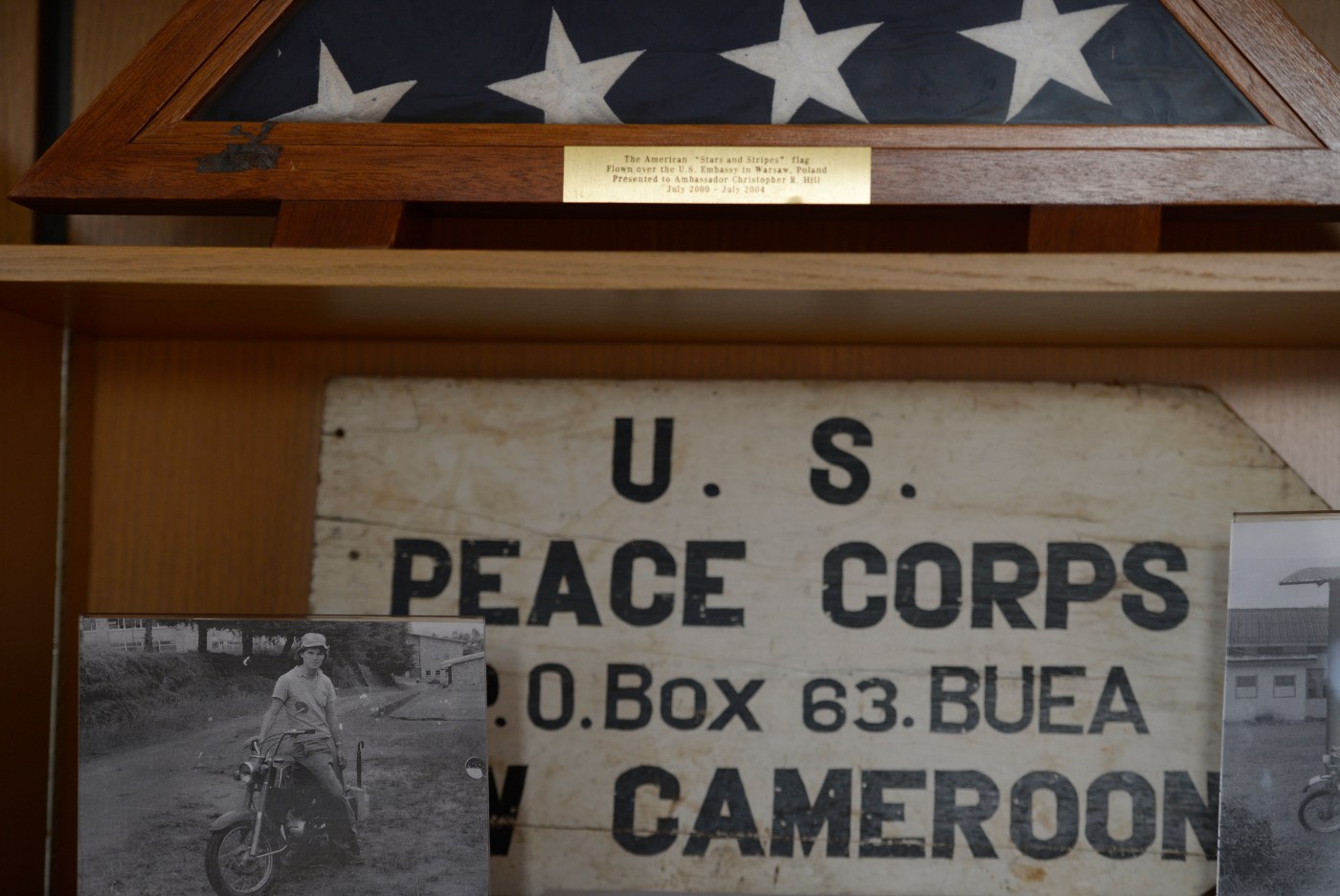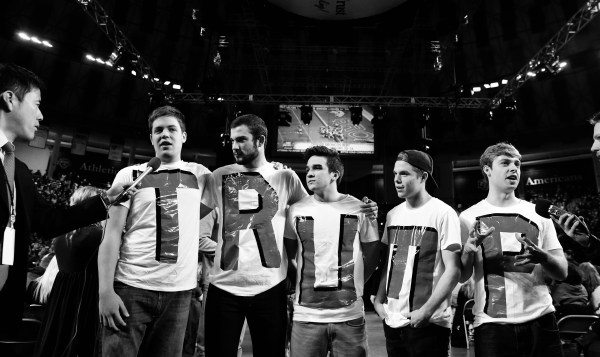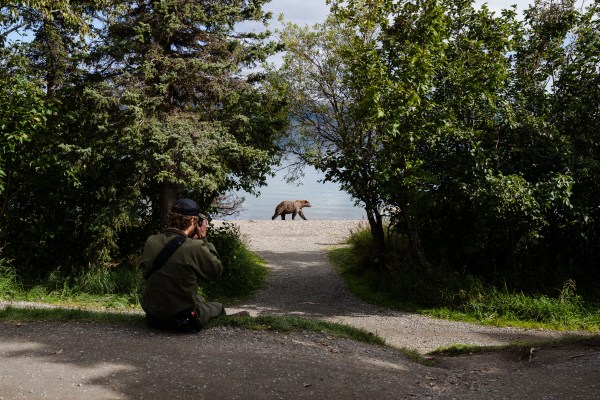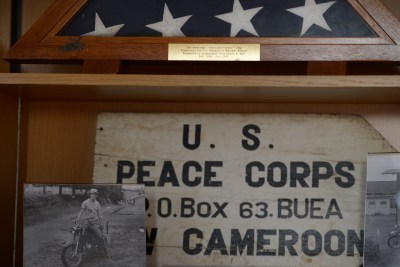Turn any article into a podcast. Upgrade now to start listening.
Premium Members can share articles with friends & family to bypass the paywall.
American power, like much else, exists on a spectrum. At one extreme of our foreign policy, there is pure force, the power of muscles and guns; somewhere toward the middle are various forms of diplomacy, from moral suasion to tit-for-tat deal-making. At the other extreme there is the power of friendships across cultures, the power of example, the power of teaching. This end of the spectrum—soft power in perhaps its purest form—is where the Peace Corps has lived since its founding.
The present administration, on the other hand, lives at the other extreme. In virtually every arena the Trump approach has been, plainly speaking, hard-ass: sending soldiers to do the work of urban police, masking ICE agents, renaming the Department of Defense the Department of War—the list is long and almost everything on it is much more “hard” than “soft.” In the foreign policy arena, compared to big stick threats like invading Greenland or weaponizing tariffs, the power of the Peace Corps is ultra-soft. It is therefore a mystery why this 64-year-old agency has so far survived relatively unscathed.
Back in 1961, the Peace Corps was a prestigious enough Kennedy administration venture to warrant the appointment of Sargent Shriver, President John F. Kennedy’s brother-in-law, as its first director, and to be given a prime address overlooking the White House across Lafayette Square. (Its offices are now two miles away, in northeast D.C.) Young people, myself included, gravitated to it, and in its first years, it attracted many college graduates who had other options; this was before the deepening U.S. involvement in Vietnam, and a time when jobs for college grads were plentiful, as were grants for graduate education. Its first groups spent three months of training at places like Princeton University (where I spent the summer of 1964, before being assigned to teach English in Marrakesh, Morocco).
The Peace Corps has three official goals: to meet countries’ needs for trained people, to promote a better understanding of America and Americans, and to promote a better understanding of other peoples by Americans. The success of the first goal is arguable. In my case, one of my Moroccan students became an English professor and another ended up working for the United Nations. Some of my colleagues in the health field or agriculture left behind a cohort of local people armed with skills, or better yet, attitudes, that they might not have acquired otherwise. But in Yemen, where I later served as Peace Corps country director, the then-government’s attitude was that Peace Corps Volunteers (PCVs) were free labor; for example, an American lab tech might be placed alone in a lab, without a Yemeni counterpart to train. As a result, efforts to leave behind trained Yemenis were unsuccessful.
As for the second goal, since PCVs were trained to speak the local language and required to live among the people, a 22-year-old from Minnesota or New Hampshire necessarily became a sounding board for the people she encountered, either reshaping their often negative opinions of Americans, or filling in the sometimes vague and partial picture of who we are. In the case of the third goal—it is safe to speculate that the more than 240,000 Americans who have served as PCVs came home with a broader, more tolerant, more open-minded view of the rest of the world than most other Americans, even those who are well-traveled.
Back in its heyday around 1966, the total volunteer cohort was about 15,000 people, and the Peace Corps over the years has operated in 144 countries. Part of its attraction then, and perhaps also now, was its purism. Volunteers tended to be young and energetic, idealistic if not naive, true believers in helping others and improving not only lives but the development prospects of the countries we served in. Many of us felt we were an elite corps; indeed, the very use of the word “Corps,” (as in the U.S. Marine Corps) was perhaps no accident. While we were not putting ourselves in harm’s way in war, and did not undergo Parris Island levels of training, we were “gung ho,” and some PCVs assigned to remote areas did undergo physical training in Puerto Rico.
In many cases, PCVs faced hardships that the average peacetime Marine did not. No Marine serves alone, but many PCVs did so in villages where there were no other foreigners. Chronic diseases like dysentery were common. In my day, even in Morocco, which was much more developed than, say, Zaire (now the Democratic Republic of the Congo), a two-year assignment meant very little contact with family and friends at home. Letters moved slowly; there was no internet, and a rare choppy telephone call involved a lengthy and costly process of booking the call at the local post office and lots of waiting. While there was a nurse and sometimes a doctor at the country headquarters office, once at our posts we were left to fend for ourselves; each of us was given a first aid kit and a book called Where There Is No Doctor. We were paid little, expected to house ourselves similarly to the people among whom we lived. Above all, we were trained to speak the language of the country. And indeed, there are now thousands of returned PCVs (called RPCVs) who can (or could at one time) speak fluent Thai, Tagalog, Fula, Swahili, Hindi, Chinese, Arabic, Amharic, and of course Spanish. To put it in more modern parlance, we were the anti-ugly Americans.
Not a few RPCVs went into international work, became area specialists or academics, or worked in international development agencies. To date, at least 20 became ambassadors, three became governors, and 15 entered Congress. Jimmy Carter’s mother was a PCV; others made it big in business (Netflix’s Reed Hastings), or the arts (author Paul Theroux). But most of us went home to Oregon, Indiana, Maine, Arkansas, and lived useful lives doing many things, and while we made rather little of our experience (many of us quickly learned that others were not really interested in our experiences), it remained part of our identity.
Even in the 1960s the Peace Corps was small; today it is tiny and its budget ($430 million) would buy a little more than one B-1B bomber. The current cohort of PCVs is about 3,000, a fifth of its peak in 1966, serving in some 60 countries. Unlike the early days, few college graduates think about joining, and a great many Americans are unaware of its existence. But its soft power remains real and relevant.
Take English teaching, a core skill of the Peace Corps since its founding. My entire cohort of volunteers in 1964 (some 40 of us) were all posted as English teachers in Morocco. Since that time, the Peace Corps has sent hundreds of English teachers to Morocco, and thousands to many other countries. In our era of quantification, of numbers and data, soft power does not fit; it cannot easily be measured. But it seems reasonable to say that English language skill has played a key role in Morocco’s tourism industry, and in its move toward developing a high-tech, diversified, and internationally oriented manufacturing sector. The spread of English as the world’s practical lingua franca cannot be attributed to the Peace Corps alone, but it would be nonsensical to say it didn’t contribute.
Some 17 years ago, right before President Barack Obama’s election, the Brookings Institution called for a renewed effort to wield American soft power and recommended that a new administration increase the size of the Peace Corps tenfold. That did not happen, of course, but the agency continued to operate, untouched.
The current administration, however, seems unable to allow any part of government to go on as usual. A cousin of the Peace Corps, AmeriCorps, with a budget of over $1 billion, is being effectively shut down, and USAID, which was also a soft power agency, is gone. And in May, a report in The Hill sounded the alarm that the Peace Corps would go down the same road.
This has not yet happened. But as of this summer, moves to compromise the Peace Corps’ historic independence were underway. In August its top three staff “stepped down,” and it is now being run by interim acting staff. The new acting CEO is listed on the Peace Corps website as the lead representative in the DOGE review of Peace Corps operations. In addition and perhaps more important are unprecedented directives from the Office of Management and Budgets (OMB) which could affect the Peace Corps’ operating independence. A recent report notes that under the technical mechanism of “apportionments with restrictive footnotes,” the OMB could “rewrite how an agency operates without changing any laws. It’s a powerful tool that bypasses the normal legislative process while staying within legal bounds.”
All the same, it seems that the Peace Corps is being treated considerably less harshly than other agencies that do not fit the administration’s vision. It is significant that its recently appointed acting executive staff are long-time Peace Corps insiders. And, some degree of staffing cuts may well be warranted, as the current ratio of PCVs to staff appears close to 3 to 1.
Could it be that the agency has been left relatively unscathed because of its small size, or perhaps because it slips so easily through the accountability net? With few if any champions in government, no big money lobbying force, and at the same time no great enemies, the Peace Corps is perhaps not worth the trouble of a rigorous cost-benefit analysis. It may be that sometimes, slipping through the cracks can be a blessing.






Please note that we at The Dispatch hold ourselves, our work, and our commenters to a higher standard than other places on the internet. We welcome comments that foster genuine debate or discussion—including comments critical of us or our work—but responses that include ad hominem attacks on fellow Dispatch members or are intended to stoke fear and anger may be moderated.
With your membership, you only have the ability to comment on The Morning Dispatch articles. Consider upgrading to join the conversation everywhere.